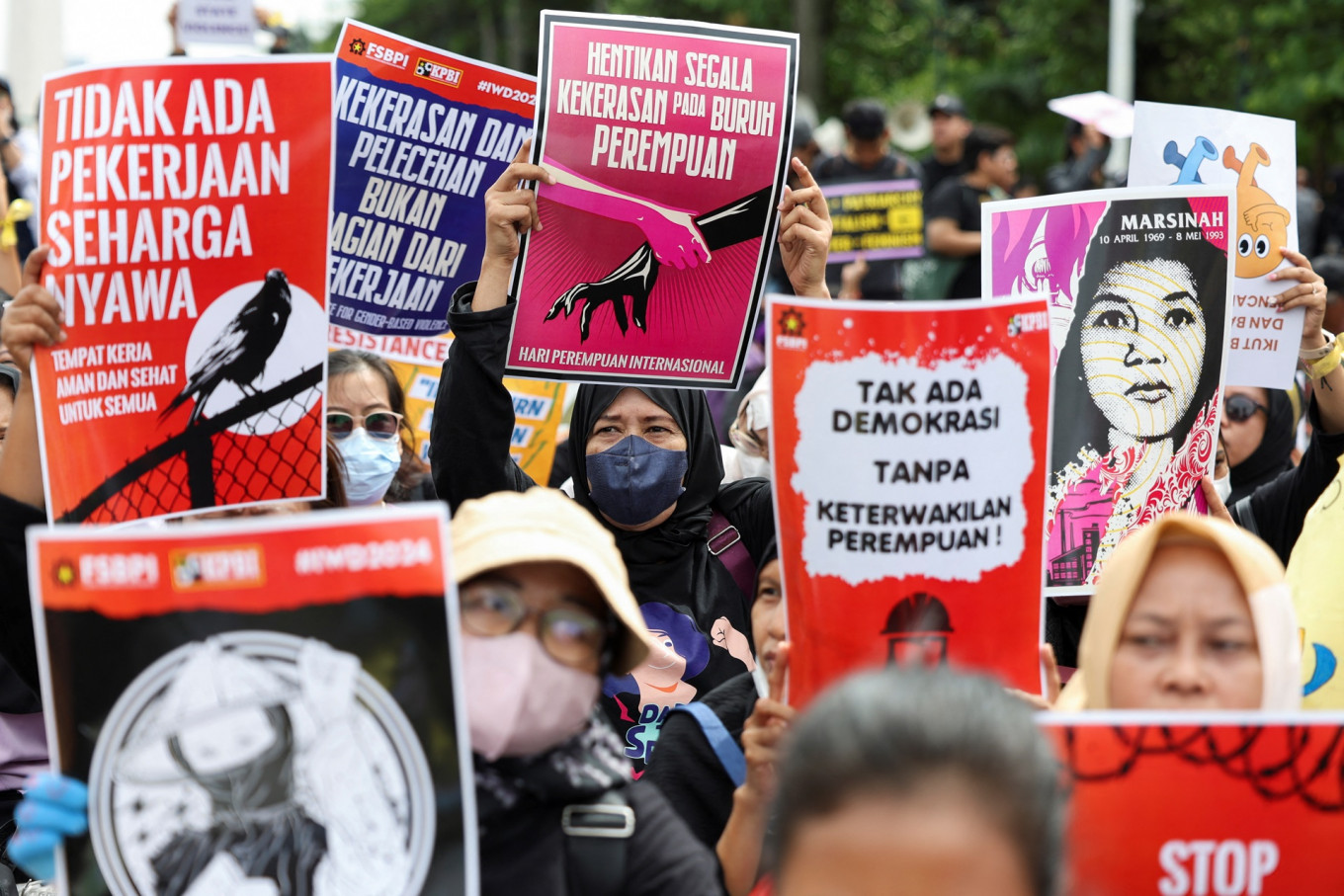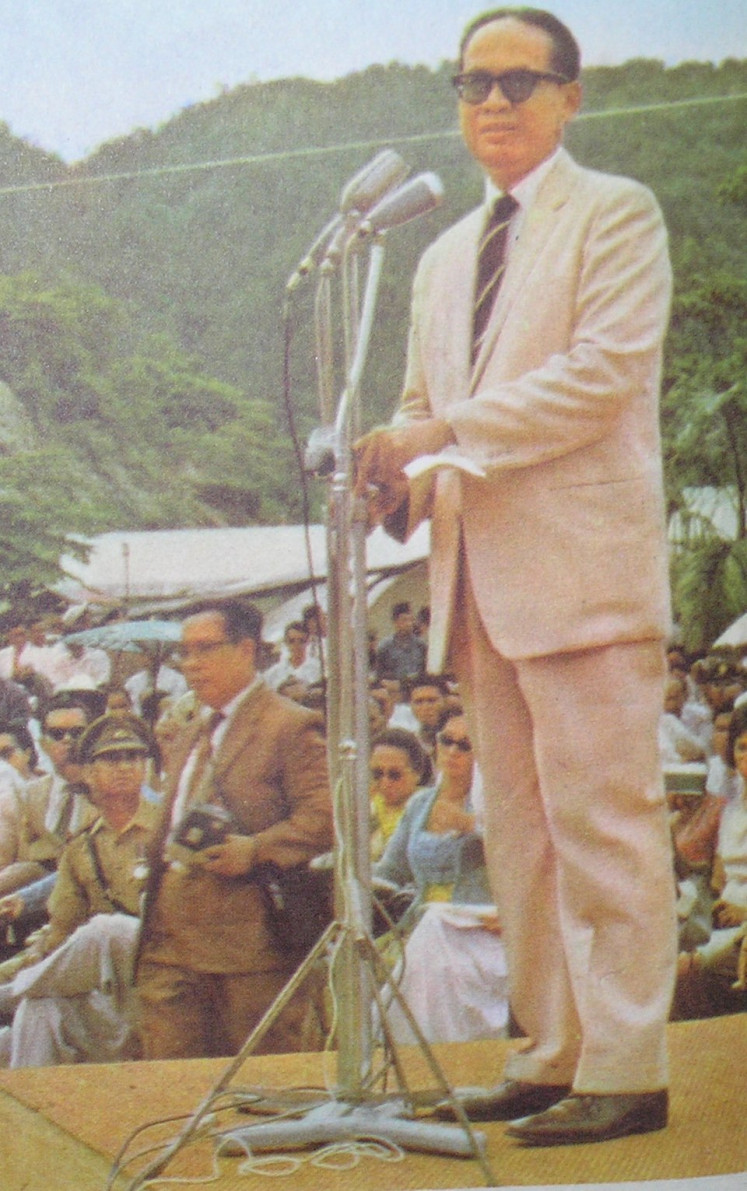Popular Reads
Top Results
Can't find what you're looking for?
View all search resultsPopular Reads
Top Results
Can't find what you're looking for?
View all search resultsGender equality: A challenge for the new administration
The government has not yet completed the necessary implementing regulations for laws that concern women's rights, let alone changed the attitudes of law enforcers in the justice sector.
Change text size
Gift Premium Articles
to Anyone
 People carrying placards take part in a rally on March 8, 2024, to support women's rights and to call for gender equality, protest against gender discrimination and demand the impeachment of Indonesia's former president Joko "Jokowi" Widodo, during International Women's Day in Jakarta, Indonesia. (Reuters/Ajeng Dinar Ulfiana)
People carrying placards take part in a rally on March 8, 2024, to support women's rights and to call for gender equality, protest against gender discrimination and demand the impeachment of Indonesia's former president Joko "Jokowi" Widodo, during International Women's Day in Jakarta, Indonesia. (Reuters/Ajeng Dinar Ulfiana)
T
he recently published 2024 Sustainable Development Goals (SDGs) Gender Index makes for depressing reading. With just six years left to the 2030 deadline, no country is on track to achieve its SDG commitments on equality for women and girls.
The report notes that at the current global rate of progress, a girl born today would have to wait until her 97th birthday to see an equal society. Furthermore, if the current trend toward stagnancy and backsliding continues, inequality could even be worse in 2030 than it was in 2015 when the SDGs were agreed.
The situation in Indonesia is more or less the same. While the country has shown improvement in gender indicators in areas like affordable and clean energy, water and sanitation and health, in many areas it ranks close to or even below the average for the Asia-Pacific region. Meanwhile, Indonesia’s overall gender equality rating remains poor.
This is a disappointing legacy of former president Joko “Jokowi” Widodo, who early on positioned himself as a supporter of gender equality. As Indonesia’s new leadership assumes office, it is instructive to take a closer look at what happened during the decade-long Jokowi administration.
In 2016, as one of UN Women’s HeForShe ambassadors, he committed to several actions to improve the situation of women and girls in Indonesia. These included achieving at least 30 percent representation of women in parliament; reducing maternal mortality and improving access to reproductive health services; and ending violence against women and girls.
Since then, political representation has improved, but slowly. Legal requirements that at least 30 percent of candidates on party lists are women, established before Jokowi came to power, have helped to increase female representation in the national parliament from 17.3 percent in 2014 to 21.9 percent after the 2024 election.
The pace of change has slowed, however, as most of the increase occurred in the 2019 election. According to Perludem, political parties still do not provide enough support to female candidates, and many are reluctant to put them at the top of voting lists. As a result, Indonesia remains well short of the targeted minimum 30 percent representation. The quality of representation remains concerning, as CSIS Indonesia indicates that 45.67 percent of the elected women are associated with political dynasties.


















